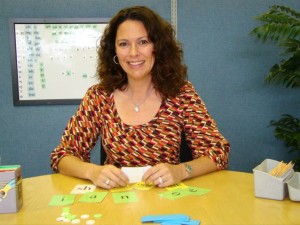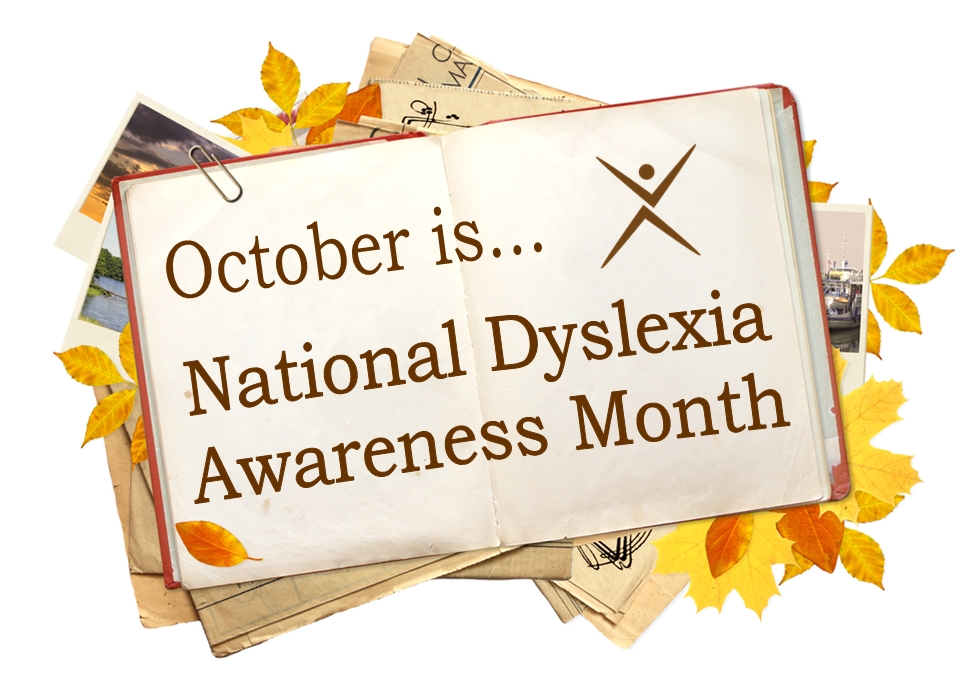
by PRIDE Reading Program Admin | Oct 3, 2015 | A PRIDE Post, Dyslexia
Dyslexia Facts
Dyslexia is a language-based learning disability and one of the most common causes of reading difficulties in elementary school children.
Approximately 1 out of every 5 children in the United States struggles with dyslexia!
Some problems displayed by students with dyslexia involve:
- Learning to speak
- Organizing written and spoken language
- Learning letters and their sounds
- Memorizing number facts
- Spelling
- Reading
- Learning a foreign language
Dyslexia is a life-long condition. With the proper help and early intervention, students with dyslexia can learn to read and write. Most children with dyslexia will need extra help from a teacher, tutor, or therapist specially trained in using a multisensory, structured language approach.
Multisensory teaching
The most effective teaching method for children with dyslexia is a multisensory approach. Multisensory teaching utilizes all the senses to relay information to the students. The teacher accesses the auditory, visual, and kinesthetic pathways in order to enhance memory and learning. For example, when learning the vowel combination “oa” the student might first look at it and then have to trace the letters in the air while speaking out loud. This combination of listening, looking, and moving around creates a lasting impression for the student as things will connect to each other and become memorable. Some other multisensory activities are:
- Fill an empty cookie sheet with flour or rice and let the child trace letters with their fingers. Shake the tin to start over.
- Fill a large resealable see-through bag with shaving foam. Close it tight and let the child use his or her finger to make letters in the foam.
- Make tactile letters – use glue to stencil letters onto paper or cardboard and cover them with sand or glitter.
- Make alphabet cookies using letter-shaped cookie cutters, or use the cookie cutters with play dough.
- Incorporate fun activities into the learning time. Games and other creative activities get the dyslexic child more involved in the learning process and it gives them a sense of accomplishment.
- Act it out! Dyslexic children are often very good actors and this gives them an opportunity to verbally express their knowledge and “shine.”
- Use objects and manipulatives when teaching. Dyslexics like to feel and touch the concept being taught. This could be as simple as a note card that they hold while reading out loud.
Time
Dyslexic students often struggle with focus and attention. They are easily distracted and often have a hard time listening to a long lecture or watching a long video. Dyslexic children may also struggle with short-term memory deficits, making it difficult to take notes or understand simple instructions.
- Go slowly. Do not rush through a lesson. Give the student time to copy anything written on the board (or remind them to take a picture with a phone). Make sure the dyslexic student understands you before moving forward to the next concept.
- Repeat yourself a lot. Dyslexics often struggle with short-term memory deficits; it is difficult for them to remember everything you said. Repeat instructions, keywords, and concepts so students are more likely to remember what you say, or have time to write it down.
- Give them short breaks often. Sitting and focusing for long periods of time is very difficult for dyslexic children. Move around from activity to activity.
- Give the dyslexic child more time. It takes dyslexic children longer to complete assignments other students may have no problem completing. Allow the dyslexic student more time to take exams and quizzes and to complete homework so they do not feel rushed.
- Time to process what he has heard
Handouts
Due to short-term memory deficits in dyslexic students, providing them with visual handouts is extremely beneficial to them.
- Use outlines for lectures
- Have the homework written on the whiteboard daily and remind them at the beginning or end of each class period to take a picture of it on their phones
- Use visual cues, such as asterisks and bullets to highlight important directives or information
- Have reference guides, multiplication charts, alphabet and number lines handy for them to use
Learn more about the New PRIDE Reading Program
___________________________________________________________________________
Karina Richland, M.A. is the Founder and Director of PRIDE Learning Centers, located in Los Angeles and Orange County. Ms. Richland is a certified reading and learning disability specialist. Ms. Richland speaks frequently to parents, teachers, and professionals on learning differences, and writes for several journals and publications. You can reach her by email at karina@pridelearningcenter.com or visit the PRIDE Learning Center website at: www.pridelearningcenter.com

by PRIDE Reading Program Admin | Sep 27, 2015 | A PRIDE Post, Dyslexia
October is National Dyslexia Awareness Month and PRIDE Learning Center will help raise awareness for dyslexia by offering FREE reading assessments throughout the month.
“One out of every ten children has some form of dyslexia,” says Karina Richland, owner of the dyslexia reading centers. “Reading and writing are very difficult for children with dyslexia and these really smart kids end up struggling so much in school.”
PRIDE Learning Center teaches kids with dyslexia how to read and write using a multisensory system called the Orton-Gillingham approach. It is an intensive one-on-one reading program that stresses teaching the entire structure of written English through systemized teaching of letters and their corresponding sounds.
“Most parents don’t even know this type of teaching exists,” says Richland. “This isn’t a brand new program either, the Orton-Gillingham approach to reading has been around since the 1940’s. It is amazing how structured and repetitious it is. Our kids reading skills improve 100% when they come here. It is hard work but we make it really fun and the kids just love coming here.”
Throughout the month of October, parents can bring their children into any local PRIDE Learning Center for a free assessment that will measure their reading abilities. PRIDE Learning Center has locations in Newport Beach, Mission Viejo and San Clemente. To schedule an appointment contact PRIDE Learning Center at 866-774-3342 or visit the website at www.pridelearningcenter.com.

by PRIDE Reading Program Admin | Apr 12, 2015 | A PRIDE Post, Dyslexia
Parents are always asking me what they can do to help their dyslexic child. My first response is to most importantly get the child into an Orton-Gillingham program that will give them the necessary skills for reading, writing and spelling improvement. This will need to be done by a trained specialist and should be the number one priority for the dyslexic child.
Keep in mind that the trained dyslexia professional is helping your child by doing the difficult work for you. They are doing reading activities and skill training. It won’t necessarily be for fun and pleasure. So, this is the perfect time that you as a parent get to just read together with your child for fun and pleasure. This is what you the parent can do to give your child the dyslexia help at home they need.
Most likely you will be working with your child after school when they are tired and less receptive to learning and when you, too, are not at your most energetic or patient, therefore, I recommend that you read together with your child for at least thirty minutes each evening making it fun and not a chore for either of you. Evenings spent reading together build a lifelong pattern of enjoyment. A child who avoids reading is among those most in need of practice and guidance, and is especially helped by your reading aloud with him.
When reading for pleasure, allow your struggling reader to relax and listen attentively without being expected to read. You should still encourage your child to sit next to you, so he can see the pages of the book as you read. If you are helping your child with a book that must be read for school, encourage your child to participate by taking turns reading; you can ask your child to read a sentence or a paragraph, then read several paragraphs yourself, then let your child have another turn.
In books with a lot of dialogue, another technique for shared reading is to let your child take the role of one (or more) or the characters, reading the quoted words for that character. This is also a good opportunity to help your child focus on punctuation, such as quotation marks, commas, periods, exclamation points, and question marks. Many children with dyslexia do not understand what punctuation means, and they tend to ignore or disregard punctuation marks when reading because they are so focused on trying to decipher the letters and words. With oral reading, punctuation takes on added significance, as it provides information about when the reader should pause and the intonation that should be used.
When your child is reading aloud, do not interrupt to correct mistakes that do not change meaning, such as reading “mom” for “mother.” Frequent interruptions will cause your child to lose confidence and make comprehension more difficult. If your child stumbles over a word, simply tell her what it is. Do not try to use teaching techniques such as having her sound out words at this time. Instead, enjoy the story together, discuss the plot, and praise your child for her efforts when she reads aloud and is able to figure out some words on her own.
Your child may find it helpful to hold an index card or ruler under each line of text as he reads. This will help him stay focused on the text. It is also possible to purchase a reading guide with a colored filter in the center, which is designed so that your child can move it down the page as he reads.
Some children prefer fiction while others prefer nonfiction. By pairing them, your child will be exposed to both genres. Your child will also love discussing these books together with you.
Because a child with dyslexia needs very individualized and specialized reading help, I recommend that parents become the child’s biggest helper. Teaching a child with dyslexia how to read is a complex task, but with a loving touch and good humor, you the parent can most definitely accelerate your child’s progress.
Learn more about the New PRIDE Reading Program
____________________________________________________________________________________

Karina Richland, M.A. is the Founder of PRIDE Learning Centers, located in Los Angeles and Orange County. Ms. Richland is a certified reading and learning disability specialist. Ms. Richland speaks frequently to parents, teachers, and professionals on learning differences, and writes for several journals and publications. You can visit the PRIDE Learning Center website at: www.pridelearningcenter.com

by PRIDE Reading Program Admin | Mar 13, 2015 | Pride San Clemente, Summer Programs
PRIDE Learning Center, a specialized tutoring center in San Clemente, has announced it will offer a specialized summer reading camp to better meet the needs of children with dyslexia, auditory and visual processing, speech delays, autism, ADHD and other language and learning disabilities.
The summer reading camp at PRIDE Learning Center in San Clemente will run weekly from June – August to accommodate busy schedules and traveling families. Children can attend from either 9:00am – 12:00pm or 12:30pm – 3:30 pm Monday –Friday. All of the teachers at PRIDE Learning Center are credentialed with strong special education backgrounds and deliver one-on-one Orton-Gillingham language and reading lessons.
“This summer reading camp at PRIDE is designed to help students in a way that a regular summer school program cannot,” states Center Director Lauren Rice. “Summer is a wonderful and effective time for struggling students to boost their skills and close the reading and comprehension gaps,” says Rice.
PRIDE Learning Center is a leading tutoring company in Los Angeles and Orange County, for students with learning disabilities. Their reading and comprehension program has been shown to boost student performance almost 2 grade levels in just 3 months. The Orton-Gillingham instruction develops the underlying reading and comprehension skills necessary for students with dyslexia, auditory processing, visual processing, autism, speech delays, ADHD and other learning challenges. It is common to see years of reading improvement after just weeks of intensive instruction.
“Although the reading camp is intensive and highly structured, the teachers at PRIDE make it really fun and super engaging for the kids. The kids love it and we have families return to us each summer,” says Lauren Rice.
Individuals interested in the summer reading camp at PRIDE Learning Center in San Clemente can call (949) 284-8015, visit the website at www.pridelearningcenter.com or email info@pridelearningcenter.com.

by PRIDE Reading Program Admin | Oct 14, 2014 | Dyslexia
October is Dyslexia Awareness Month and PRIDE Learning Center and the International Dyslexia Association is sponsoring an event in San Clemente to help parents, teachers and individuals affected by dyslexia.
On Thursday, October 23rd at 7:00pm, the International Dyslexia Association will be hosting a large Dyslexia Awareness Event in San Clemente. The event will be held at Our Lady of Fatima Church located at 105 North La Esperanza. The evening will include speakers, information, resources and support.
PRIDE Learning Center, a local dyslexia tutoring company, will help the San Clemente community by participating in this October dyslexia event. This local learning center will have a booth at the event providing free assessments, free tutoring coupons, dyslexia resources and gift baskets.
We support Dyslexia Awareness Month,” says Karina Richland, owner of PRIDE Learning Centers. “We want to help increase the awareness of dyslexia in the South Orange County communities and advocate for the needs of individuals with dyslexia and their families,” says Richland.
Dyslexia affects a large part of the population. 1 out of every 5 children has symptoms of dyslexia, including slow or inaccurate reading, poor spelling and poor writing. Dyslexia is a language-based learning disability and is not due to a lack of intelligence or a desire to learn.
“We are so excited to participate in this event and help bring dyslexia awareness to the forefront and show that we at PRIDE Learning Center are here to help the children, families, teachers and professionals in the South Orange County community,” says PRIDE Learning Center owner, Karina Richland.
PRIDE Learning Center has four locations, San Clemente, Mission Viejo, Newport Beach and Redondo Beach. For more information contact PRIDE Learning Centers at 866-774-3342 or visit the website www.pridelearningcenter.com.






